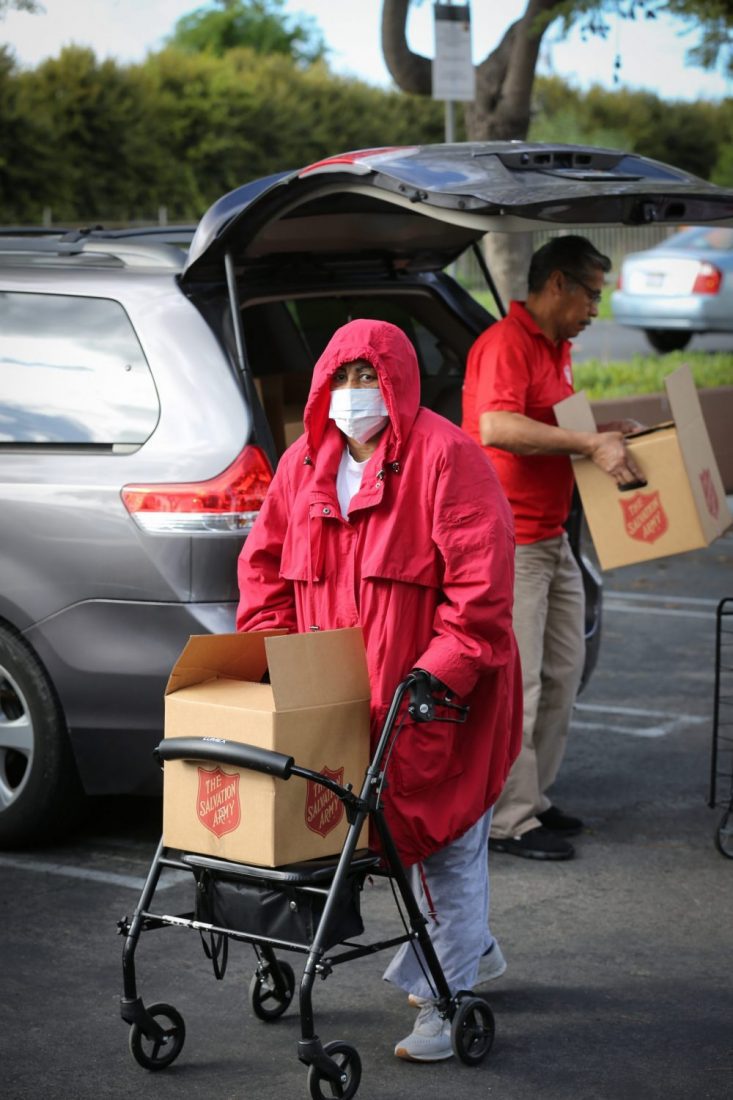 Commercial sex workers in Dar es Salaam receive care and counseling from Army workers. |
Drosella, 39, lives alone in a one-room dwelling, off a rutted dirt lane lined with small shops in a neighborhood filled with brothels. Recently diagnosed with tuberculosis, the former commercial sex worker’s body has already been weakened with HIV/AIDS. In all likelihood, she has few birthdays ahead. Her story is not uncommon in Dar es Salaam; it is based in the economics of poverty.
“Drosella was married, and after four years her husband divorced her,” explains Florida Kalemera, a nurse and the Salvation Army Women and AIDS Kwetu Project’s domestic manager. “After the divorce she moved back to her parent’s home in a village three days away, near Uganda. She saw women going to Dar es Salaam for employment, and followed suit. She first became a barmaid and then a commercial sex worker.”
Fortunately, she eventually came in contact with The Salvation Army, where she received counseling. Soon after, she decided to get checked for HIV–and learned she was positive.
Today, staff from the Army’s program visit Drosella to bring her food and vitamins. She has quit her former profession, and is participating in the Army’s micro-economic program which enables her to be self-sustaining. Florida explains, “She is now in her third month after receiving a 20,000 shilling loan to start a business selling second hand clothes. She repays the program 4,000 shillings a month from her earnings.”
Drosella smiles as she receives the supplies. Her gratitude is plain to see; her friendship with Florida is hard to miss. Her life is being touched through the Kwetu Project.
According to Lt. Colonel Jean Burrows, Tanzania Command president of women’s organizations, the intent of the project is to stop the spread of HIV/AIDS at the local village level–before women and girls become commercial sex workers. “We’re focusing on the villages, so girls don’t come to the city,” she said, noting that “Prostitution is a poverty issue. Poor economic conditions, lack of employment and skills training are all major factors that force women in this region to turn to prostitution. They believe it is the easiest way to eradicate their poverty and meet their basic needs.”
Children–young girls–often end up living on the streets when families disintegrate or they become orphans due to HIV.
The Tanzania Command started the program in 1996 with funding from AUSAID (Australia Territory), with the objective of providing: counseling, information, education and communication on HIV/AIDS, loans to start income generating activities, skills training, and assistance with knowing HIV status as well as assistance with family re-unification.
According to Community Support Director Michael Machaku, through July, 2000 more than 4,600 street girls and commercial sex workers had been assisted through Kwetu.
Its outreach to women and girls includes night street visits, to tell them about the program and provide information about HIV/AIDS and safe sex; prison visitation; and visiting at points of entry such as railroads and the ferry. Six out of ten of those on the streets are HIV positive.
Money raised in the U.S. Western Territory for the project will allow a new phase of community awareness and support to take place: training of extension officers (Salvation Army officers), community leaders, teachers and community volunteers on HIV/AIDS issues including home based care for people living with HIV/AIDS, prevention strategies and community counseling.
By providing information to entire communities, the communities themselves can help in developing prevention strategies.
The Army’s network of 65 corps and outposts also play an important role in implementation of programs. “The Salvation Army has a fantastic network,” says Burrows. She explains that Home League women can work on a local level in their communities–especially through home care for those who are dying. “They can share eternal life. Eternal life is the only hope we have.”











